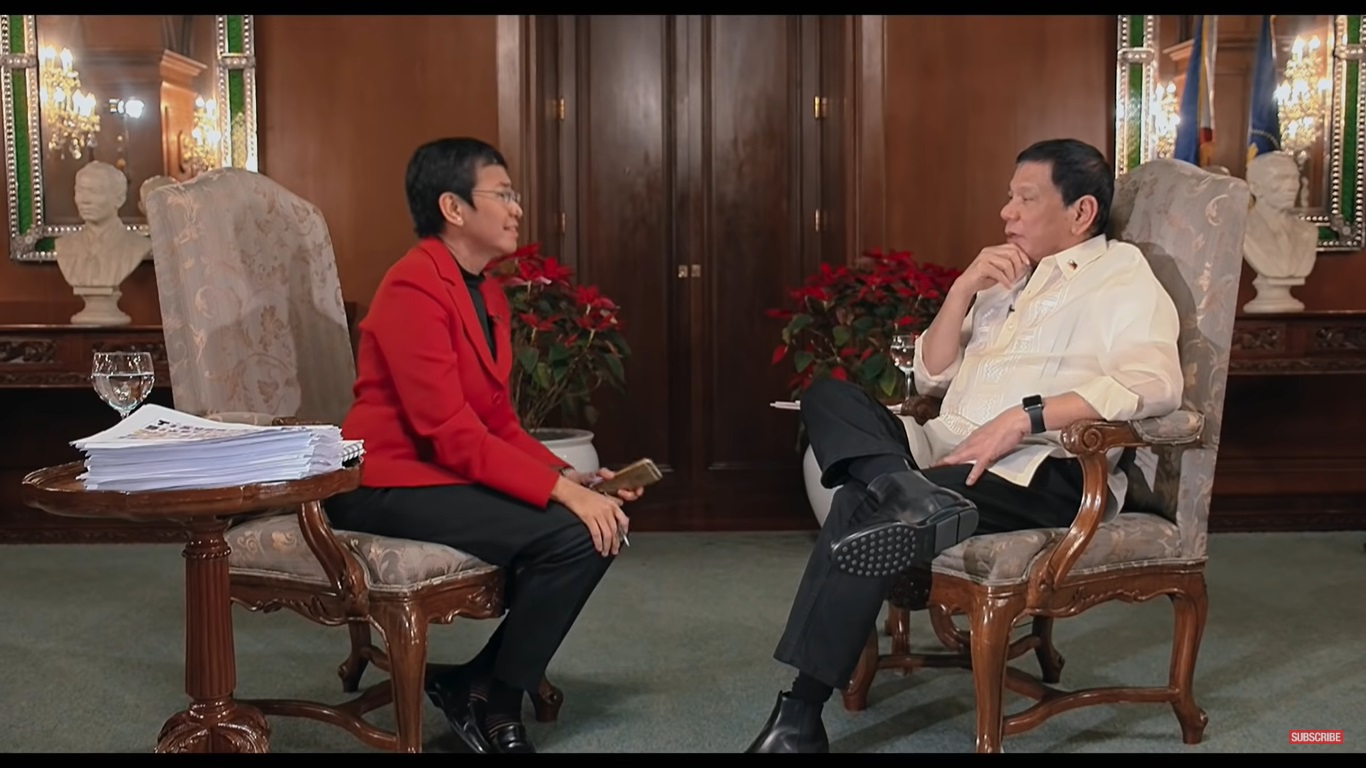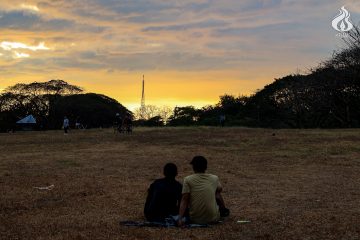BEHIND THE proverbial line “The pen is mightier than the sword” ironically resides a throng of stifled and scorned journalists, and a democracy that is gradually gashed by authoritarian edges.
When a government is threatened by its watchdogs, it sharpens its blade to tame them down.
The blade wounds one step at a time. First, it punctures through disseminating disinformation. Once this laceration bleeds enough, it alienates people from the truth— forming a sense of hostility against the press. As a consequence, society turns figuratively and even literally bloody.
Among the social watchdogs in the Philippines is the news site Rappler, co-founded by journalist and 2021 Nobel Peace Prize laureate Maria Ressa. Rappler had been the object of former president Rodrigo Duterte’s rage due to its critical coverage of his drug war. In 2017, Duterte accused the news site of being foreign-owned and violating the constitution. Later on, it was slapped with a number of tax evasion charges.

A Thousand Cuts (2020) chronicles Maria Ressa and Rappler’s experiences under the Duterte administration and its controversial drug war. The full-length documentary was written and directed by Ramona S. Diaz, whose other documentaries such as Imelda (2003) and The Learning (2011) garnered awards and premiered in film festivals.
The documentary does not only exhibit the long plight of Maria Ressa and her news outlet under Duterte, who recently admitted to using his powers to shut down a major television network.
It also reveals how social media is weaponized to harass journalists and to propagate disinformation that favor politicians. These perpetuators include the Mocha Uson Blog and Thinking Pinoy Facebook page, both of which has millions of followers despite their credibility issues.
Providing frames of livid content posted by trolls and real accounts alike, the film uses these to further demonstrate the harassment Rappler journalists experience on social media. The documentary also contains interviews of Rappler reporters recounting the repercussions of their coverage.
The use of graphic motion along with various sound effects inclines the viewers to understand different concepts vividly. In one scene, Maria Ressa elaborates how hate posts of numerous fake accounts spread like wildfire. The screen presents a graph to demonstrate the network of cultivating lies on social media. This element is the strength of the film as the visual explanations and narratives stimulate the audience to further grasp the message the film is conveying.

Furthermore, A Thousand Cuts has given space for Uson’s perspective despite having Maria Ressa and Rappler as its focal point. It follows the campaign rallies of two of Duterte’s loyal allies – Uson and then senatorial candidate Ronald “Bato” dela Rosa – during the 2019 elections. It manifests the kaleidoscopic narrative of the film as its scope extends to the government’s side.
In the space of discerning democracy, the masses must also be included. Unfortunately, this is where the documentary falls short. The screen time of an elderly woman who was given a platform to voice her qualms is brief. Moreover, it does not include a voice for the living families of extrajudicial killings victims. Since this issue has been recognized throughout the documentary, providing a space for the victims would have strengthened its relevance in the film.
Nonetheless, A Thousand Cuts portrays the strength and significance of press freedom from the perspective of Maria Ressa and Rappler. It is a cautionary tale about how the law is used as a sword to silence and suppress democratic dissent.
In these critical times, the might of the press is—again—questioned under an administration that has disinformation and historical distortion at its pillars. Now that the government’s corporate regulator has affirmed a four-year-old order shutting down the news outlet, there is another attempt to wield the sword again. F – Czerizha Kaizel S. Adzuara



